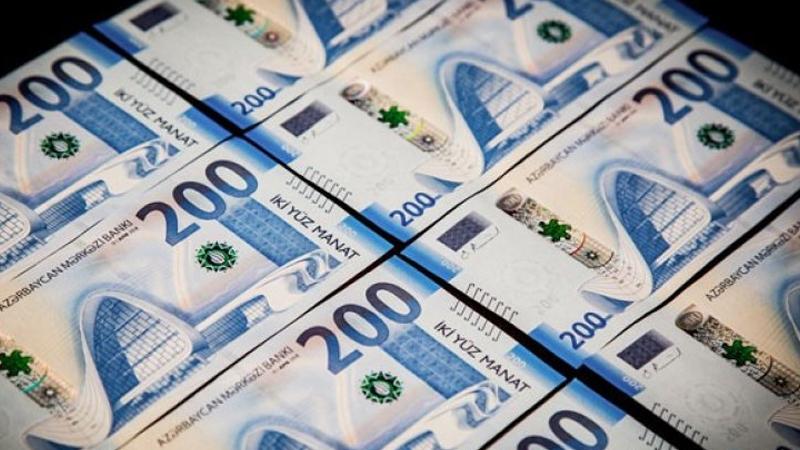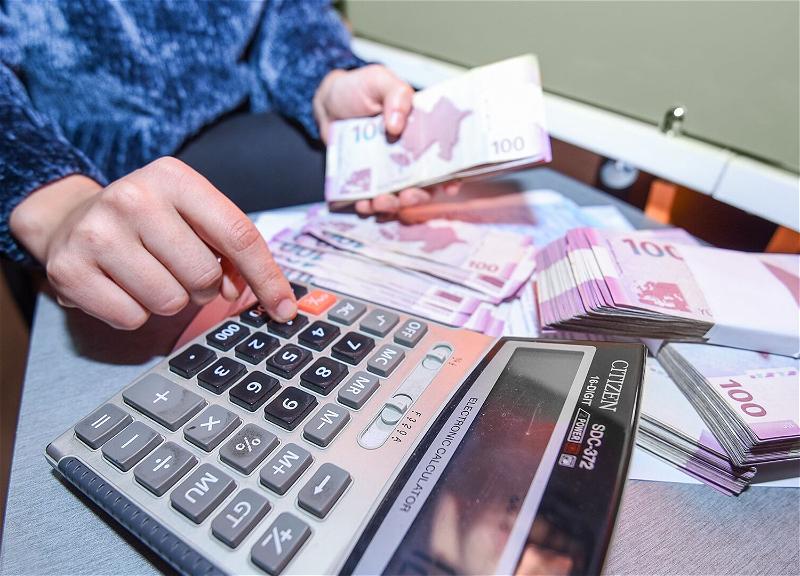Priorities - social policy, defence and Karabakh Budget based on conservative scenario
Geopolitical instability and wars, recession and other crisis processes in the world economy, high probability of volatility in commodity prices - this is the baggage with which mankind is preparing to enter 2024. Against this very difficult background, the Government and the Parliament of Azerbaijan were building the most optimal scenario of socio-economic development for the next year. Before the Parliament’s plenary session, the Law on the State Budget of Azerbaijan for 2024 was adopted in the third and final reading. Despite the conservative scenario and cautious forecasts on the revenue side, the budget was made socially oriented.
The year 2023, which is drawing to a close, has been a challenging one for the global economy. Disruptions in logistics and supply chains, price swings in the energy market, and the collapse of the grain deal have fuelled inflation. The global central banks' fight against rising prices by raising discount rates and the monetary tightening seen since mid-2022 has led to recession in the US and EU. Even the "global factory" - China has felt the decline in economic activity due to the effects of the mortgage crisis, quarantine restrictions and lower exports. The decline in global trade, imported inflation, higher cost of borrowed capital, reduced investment and other external negative factors also had an impact on the markets of developing countries, including the post-Soviet region.
According to the estimates of global think tanks, military conflicts in Ukraine and the Middle East, sanctions confrontation and other geopolitical risks will continue to harm economic development in 2024. In particular, according to the estimates of the International Monetary Fund (IMF), the global GDP growth forecast has been reduced from 3 per cent this year to 2.9 per cent next year.
For comparison: in 2022, this indicator reached 3.5 per cent. In turn, the slowdown in the global economy does not exclude a reduction in demand for energy resources. Today, the energy market faces two opposing vectors: on the one hand, the OPEC+ member countries agreed to reduce oil production by 1.66 million barrels per day in 2023 and by 1.4 million barrels per day in 2024 in the April and June agreements.
On the other hand, Washington and Brussels eased the oil embargo against Venezuela in order to reduce hydrocarbon prices, and sanctions control was also relaxed against Iran, which is rapidly increasing its oil production, which reached 3.4 million barrels per day by the end of October. Whether bullish or bearish trends will dominate the energy market next year depends largely on the pace of economic recovery and export growth in China and the Asia-Pacific (APAC) region as a whole, as well as the success of EU countries in overcoming the recession.
At the same time, it is not excluded that high price volatility will remain in the oil market, as it was in the first half of this year, and the scenario of the international rating agency Fitch Ratings is also possible, whose experts predict a decline in oil prices to a minimum of $75 per barrel in 2024.
Forecasts and trends in the development of the global economy, and the risks hidden here, were taken into account during parliamentary discussions of the parameters of the budget package at joint meetings of several committees of the parliament and government of Azerbaijan held in October-November. The day before, during a plenary meeting, the Milli Majlis adopted in the third reading the law on the state budget of Azerbaijan for 2024: state budget revenues for the next year are projected at 34.173 billion manats ($20.1 billion), expenses - 36.763 billion manats ($21.6 billion), with a deficit at 2.59 billion manats ($1.52 billion) or 2.2 per cent GDP.

For many years, the state budget has been adopted with a small deficit, and as a rule, by the end of the year, this indicator is levelled by the growth of trade and balance of payments surplus. The next year will also be a deficit. However, taking into account several external and internal factors, a tendency to reduce the gap between revenues and expenditures of the state treasury has been observed in Azerbaijan in the recent period.
In 2022 the budget was drawn up with a deficit of 2.7 per cent of GDP, in 2023 - 2.4 per cent, next year this indicator was reduced to 2.2 per cent of gross domestic product. The trend to reduce the deficit is one of the elements of the conservative scenario when drawing up the budget parameters for 2024. Also, to mitigate possible risks in the global commodity market, the parameter for calculating the state budget revenues remained unchanged, it will be based on an average oil price of $60 per barrel.
Among other things, the growing expenditures of the republic will be compensated by transfers from the State Oil Fund (SOFAZ): in the structure of state budget revenues in 2024, SOFAZ is planned to receive 12.781 billion manats, which is 8.9 per cent higher than forecasts for the current year. No tangible risks are foreseen in increasing the spending of these reserves, especially since Azerbaijan's strategic foreign exchange reserves, formed from the gold and foreign exchange reserves of the Central Bank of Azerbaijan (CBA) and SOFAZ, have been dynamically increasing this year and have grown by about 16 per cent since the beginning of 2023 and are currently at a record level. "Azerbaijan's strategic foreign exchange reserves have reached $68.3bn," Prime Minister Ali Asadov said the previous day, speaking in Parliament during the adoption of next year's budget package.
During the November plenary session of Parliament, explaining the need to increase SOFAZ budget transfers, Azerbaijani Finance Minister Samir Sharifov noted that the move would not damage the objectives of the budget rule, which underpins the country's fiscal policy, and would not lead to a weakening of macroeconomic stability. "Currently, there is a process of decline in the country's oil revenues, which is related to both global decarbonisation trends and production cuts at our oil fields," Sharifov said, stressing that all this harms budget revenues.
It is appropriate to recall here that due to the objective decline in oil production at the Azeri-Guneshli-Chirag field (ACG) and other offshore areas, last year alone the country produced 2.9 million tonnes of oil with condensate, with a decline of 6.9 per cent. In turn, the State Oil Company of Azerbaijan (SOCAR) also reduced production by 0.1 per cent over the three quarters of this year, producing just over 5.819 million tonnes of oil.
According to the minister of finance, the losses in the oil sector will be compensated by the growth of revenues from the non-oil sector, including high dynamics in the non-oil sector is expected next year. However, it should also be taken into account that according to the Accounts Chamber, the volume of tax and customs benefits for 2024 will increase significantly: it is estimated at 8.362 billion manats ($4.91 billion), which is 3.5 per cent higher than the figure expected at the end of 2023.
The budget package for next year is expected to reduce state budget revenues from the State Tax Service (STS), which is explained by the government's plans to reduce the fiscal burden on businesses and citizens. In this regard, as part of the 2024 fiscal policy, amendments to the tax and customs codes have been prepared, and privileges and exemptions from several payments will be introduced to stimulate business activity and expand the taxable base.
"Therefore, taking into account the large-scale tasks, mainly related to the restoration of the territories liberated from occupation, their reintegration into the economy, the increase in the transfer from SOFAZ seems quite reasonable and justified," Sharifov said.
It is appropriate to recall here that large-scale initiatives to revive the Karabakh and East Zangezur economic regions are defined as the cornerstone policy of the state: in 2020-2022, about 6.6 billion manats were allocated from the budget, another 3.1 billion manats ($1.82 billion) are planned to be allocated in the current year. And in 2024-2026 - during the second stage of reconstruction - it is planned to attract up to 10.5 billion manats ($6.15 billion) of budget funds - mainly for the construction of housing, creating the necessary conditions for the return of about 35,000 families. Actually, this is why the Parliament decided to increase budget expenditures for the revival of the liberated territories in 2024 to 4 billion manat ($2.35 billion).
As for other areas, the 2024 budget plans to increase spending to 6.4 billion manats ($3.76 billion) on defence and security, which is quite justified against the backdrop of growing regional instability. Expenditures on education will also increase - 3 per cent, on healthcare - 4 per cent, on social protection and social security - 5 per cent, on housing and communal services - 5 per cent, on culture - 4 per cent, on environmental protection - 2 per cent. In particular, it is planned to allocate 4.5 billion manats ($2.64 billion)for the education sector, and 4.5 billion manats ($2.64 billion) for social protection and social security.

It should be especially noted here that social programs are designated as the highest priority area of the state budget in 2024: a total of 15.773 billion manats ($9.27 billion) from the expenditure side will be allocated for these purposes, including the continuation of the policy of increasing pensions, benefits and other social payments. The success of this policy is guaranteed by the successful financial activities of the relevant social structures.
Thus, as part of the budget package for 2024, the Parliament adopted a draft deficit-free budget for the Unemployment Insurance Fund: it is projected at 238 million manats ($140 million), which is 9.3 per cent higher than the 2023 figures. In turn, forecasts for the revenues of the deficit-free budget of the State Social Protection Fund (SSPF) for 2024 exceeded 6.919 billion manats ($3.64 billion), which is 10.4 per cent more than the corresponding indicators for the current year.
The most important task of the government and the Central Bank for the next year will remain maintaining macroeconomic stability and reducing inflation, and in this regard, positive trends are expected in 2024. “According to State Statistics Committee, average monthly inflation for 11 months of 2023 amounted to 9.4 per cent. Next year, the necessary measures will be continued to ensure optimal fiscal and monetary policies, and the inflation rate is projected to be at a single-digit level,” Prime Minister Ali Asadov noted on December 5.
According to recent forecasts of the Central Bank, annual inflation in Azerbaijan next year will significantly decrease and amount to 5.3 per cent.
The prospects for a reduction in price growth in Azerbaijan are also evidenced by data from many foreign organizations. Thus, the International Corporation of Banking and Financial Services of the Netherlands ING expects that in 2024 the inflation rate in our country will decrease to 5 per cent. In turn, ING experts predict the growth of the Azerbaijani economy in 2024 to 2.5 per cent, while GDP growth of 4 per cent is expected in the first quarter alone.








